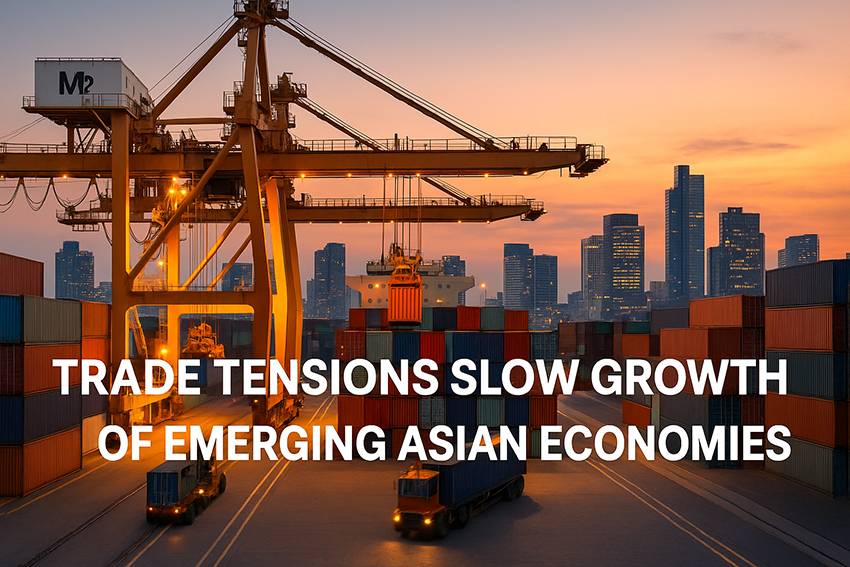2025-07-23
indicators

Emerging Asian economies are beginning to feel the impact of escalating global trade tensions, with growth projections revised downward in several countries across the region, according to economic data and policy briefings released in July 2025. After a period of strong post-pandemic recovery, many of Asia’s developing markets are now contending with slowing exports, weaker investment inflows, and mounting pressure on currency stability. The cooling global demand and increased use of tariffs, particularly by major economies like the United States and China, have disrupted key supply chains and led to rising uncertainty among manufacturers and investors alike. In its latest regional update, the Asia Development Outlook indicated that while countries such as Vietnam, Indonesia, and the Philippines continue to show positive growth, the pace has moderated compared to earlier forecasts. Economies that are heavily dependent on exports, such as Malaysia and Thailand, are seeing more pronounced effects from reduced international demand and logistical bottlenecks. One of the key concerns flagged by analysts is the decline in foreign direct investment in sectors tied to global trade. Investment in export-oriented manufacturing has slowed considerably, with multinational firms reconsidering expansion plans due to geopolitical risks and shifting trade policies. Meanwhile, capital flight and pressure on local currencies have forced several central banks in the region to intervene or revise interest rates to stabilize their economies. The slowdown also affects regional integration efforts and the performance of trade blocs such as the Regional Comprehensive Economic Partnership (RCEP), as member countries attempt to shield domestic industries from external shocks. Despite efforts to diversify trade partners and promote intra-Asian commerce, the overall growth outlook remains fragile amid tightening global financial conditions and an unpredictable policy landscape. Experts warn that unless the international trade environment stabilizes, emerging Asian economies may need to rely more heavily on domestic consumption and structural reforms to sustain growth. Policymakers across the region are now balancing short-term measures to support export sectors with longer-term strategies aimed at improving resilience and competitiveness.

